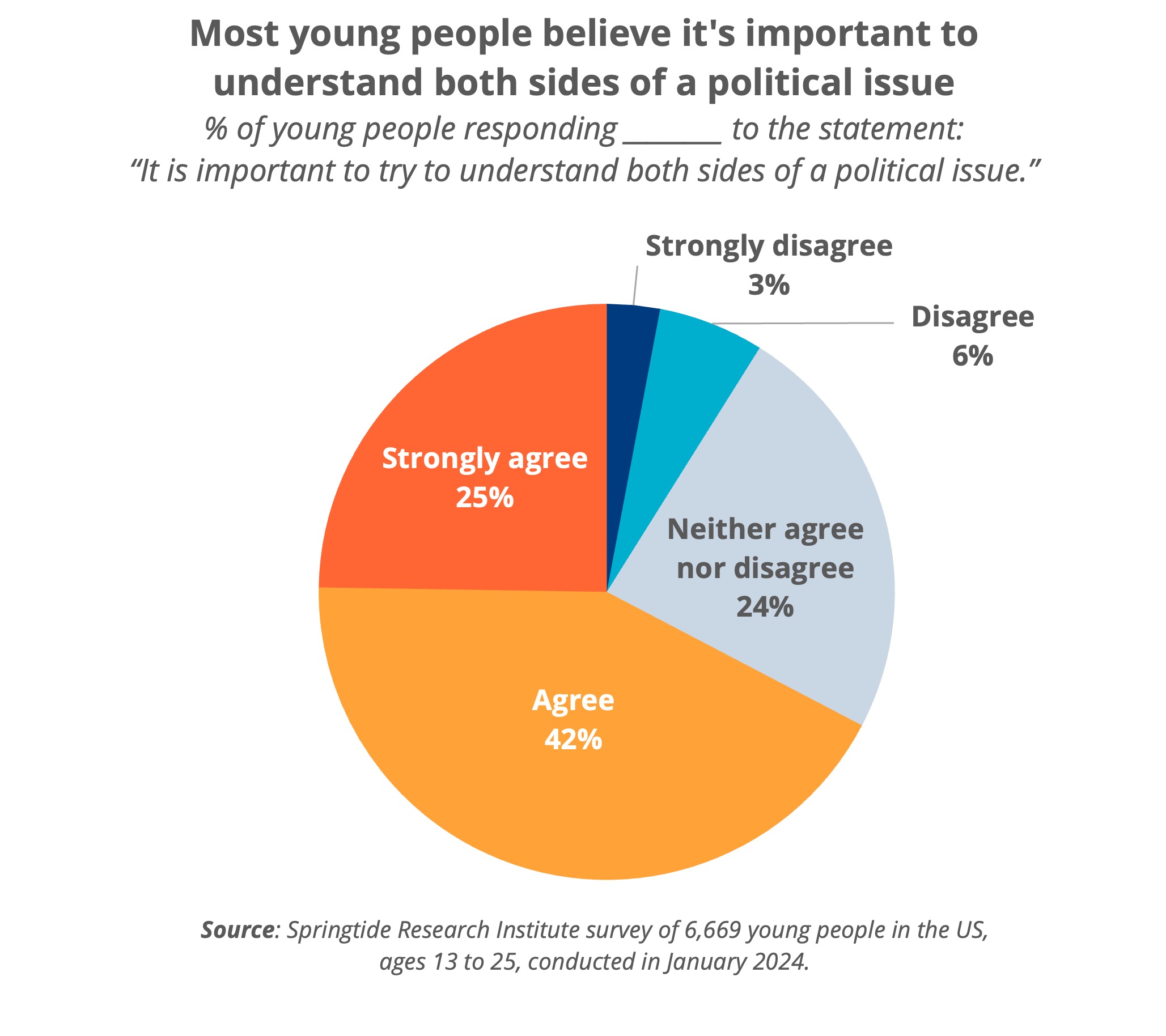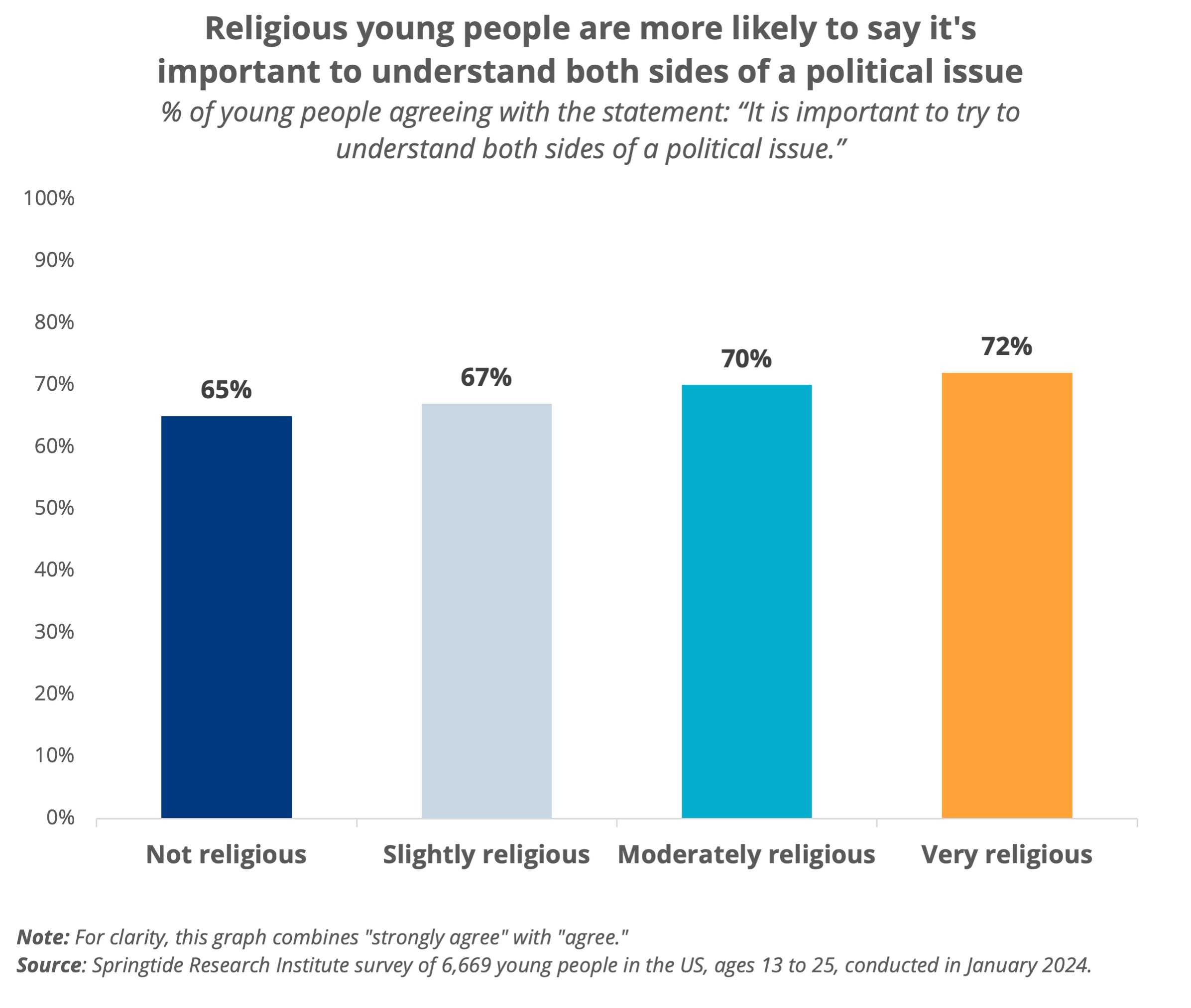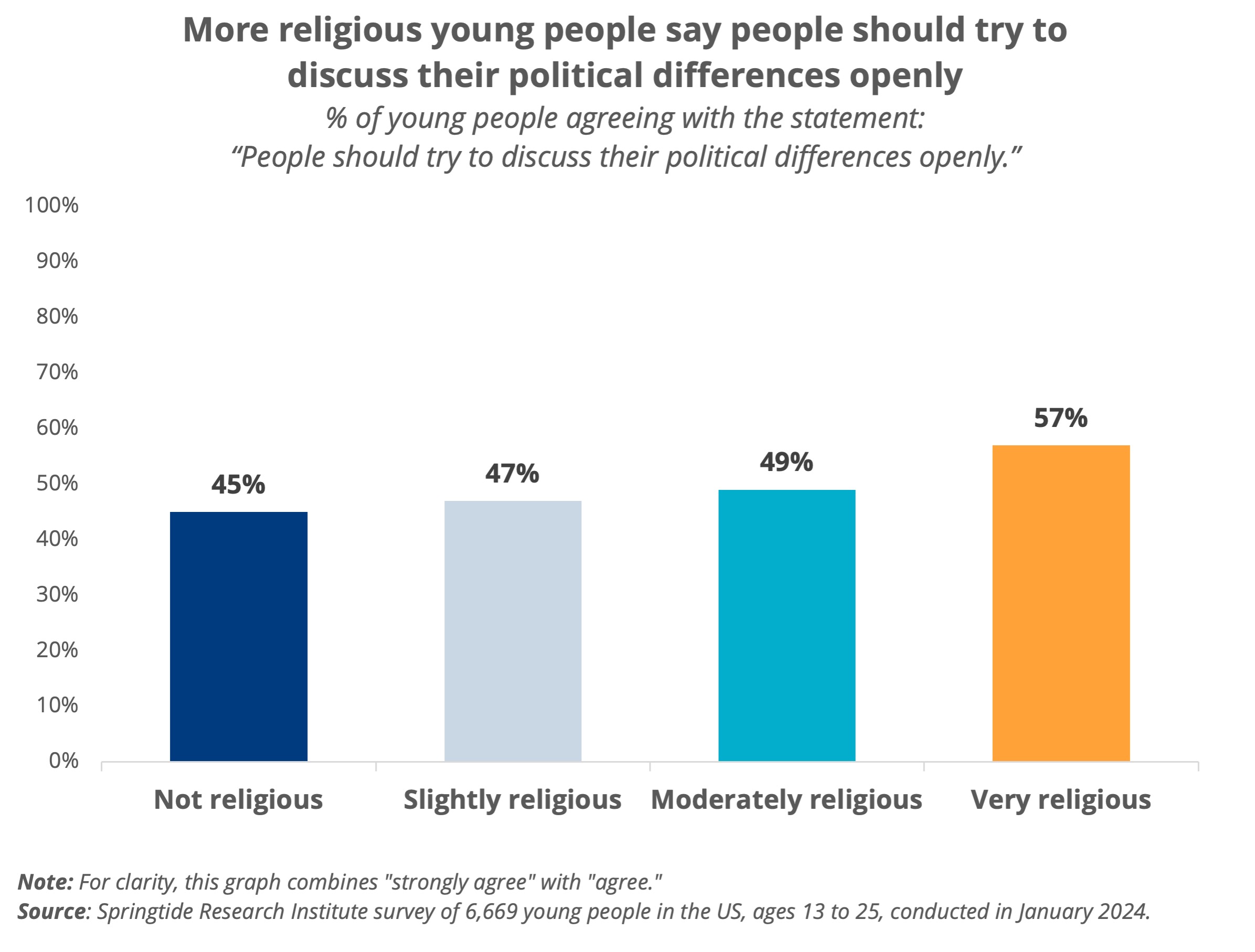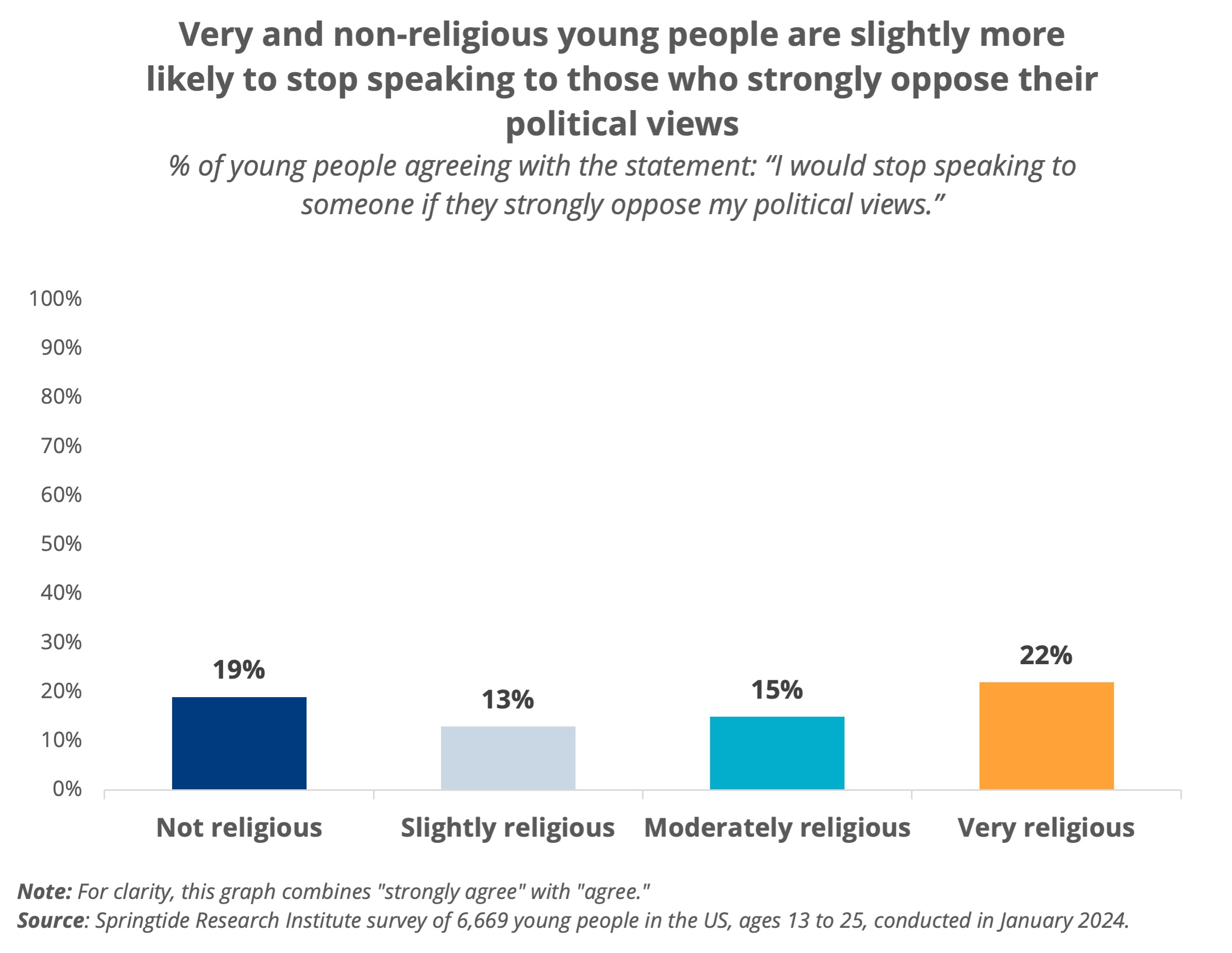
Does religiosity inform how young people approach political differences?
Roughly two-thirds of teens and young adults think it is important to understand both sides of a political issue
The majority of young people (ages 13-25) believe it’s important to understand both sides of political issues. In Springtide’s 2024 Study of Young People and Civic Life, about two-thirds (68%) of young people agree or strongly agree with the statement: “It is important to understand both sides of a political issue.” Fewer than 1 in 10 (8%) disagree or strongly disagree.

Religious young people are more likely to agree that it is important to understand both sides of a political issue
The following graphs look at young people’s attitudes on political conversations grouped by their levels of religiosity. When asking young people, “To what extent do you consider yourself a religious person?” almost 3 in 10 say they are not religious (29%), slightly religious (28%), or moderately religious (29%), and 14% say they are very religious.
The more religious young people say they are, the more they agree that it’s important to understand both sides of a political issue. Almost three-quarters (72%) of very religious young people agree with the statement, “It is important to understand both sides of a political issue.” More than two-thirds (70%) of moderately religious young people and 67% of slightly religious young people also agree. Of non-religious young people, 65% agree with this statement.

Most religious teens and young adults believe people should try to discuss their political differences openly
There is a small difference based on religiosity in agreement with the statement: “People should try to discuss their political differences openly,” with more religious young people agreeing strongly. More than half (57%) of very religious young people, 49% of moderately religious young people, 47% of slightly religious young people, and 45% of non-religious young people agree with this statement.

Does religiosity impact whether young people would end a friendship over politics?
Speaking openly about political differences can result in disagreement. About one in five very religious (22%) and non-religious (19%) young people say they would stop speaking to someone who strongly opposed their political views. When asked to respond to the statement: “I would stop speaking to someone if they strongly oppose my political views,” fewer moderately religious (15%) and slightly religious (13%) young people agree that they would stop speaking to someone who opposed their views.

In the 76 interviews conducted for Springtide’s 2024 Study of Young People and Civic Life, many interviewees talk about the importance of discussing political opinions openly to find common ground. Some young people express interest in talking about politics with people they disagree with but feel there are limits on how far the conversation can go. As one young person put it:
“I’m open to changing my mind if [the argument is] substantial, but if it’s just, ‘The Bible says thou shall not kill,’ I don’t want to hear your voice anymore because it’s not gonna get me anywhere.”
—Armani, 18
Note: Data presented in this Data Drop are drawn from the 2024 Springtide Study of Young People and Civic Life. See survey responses in the topline survey results and review methodology here.



